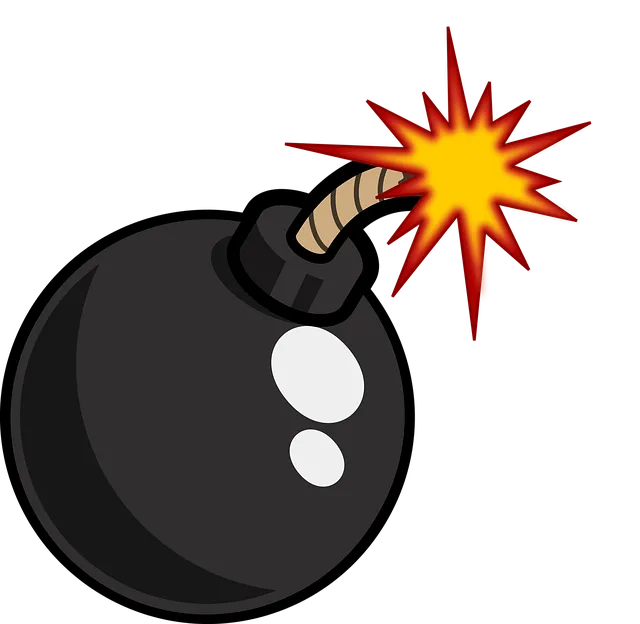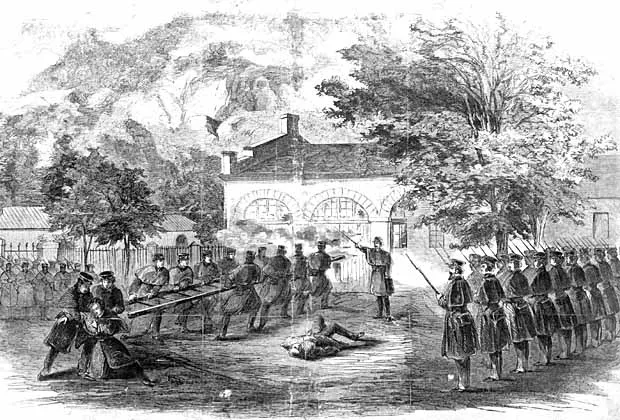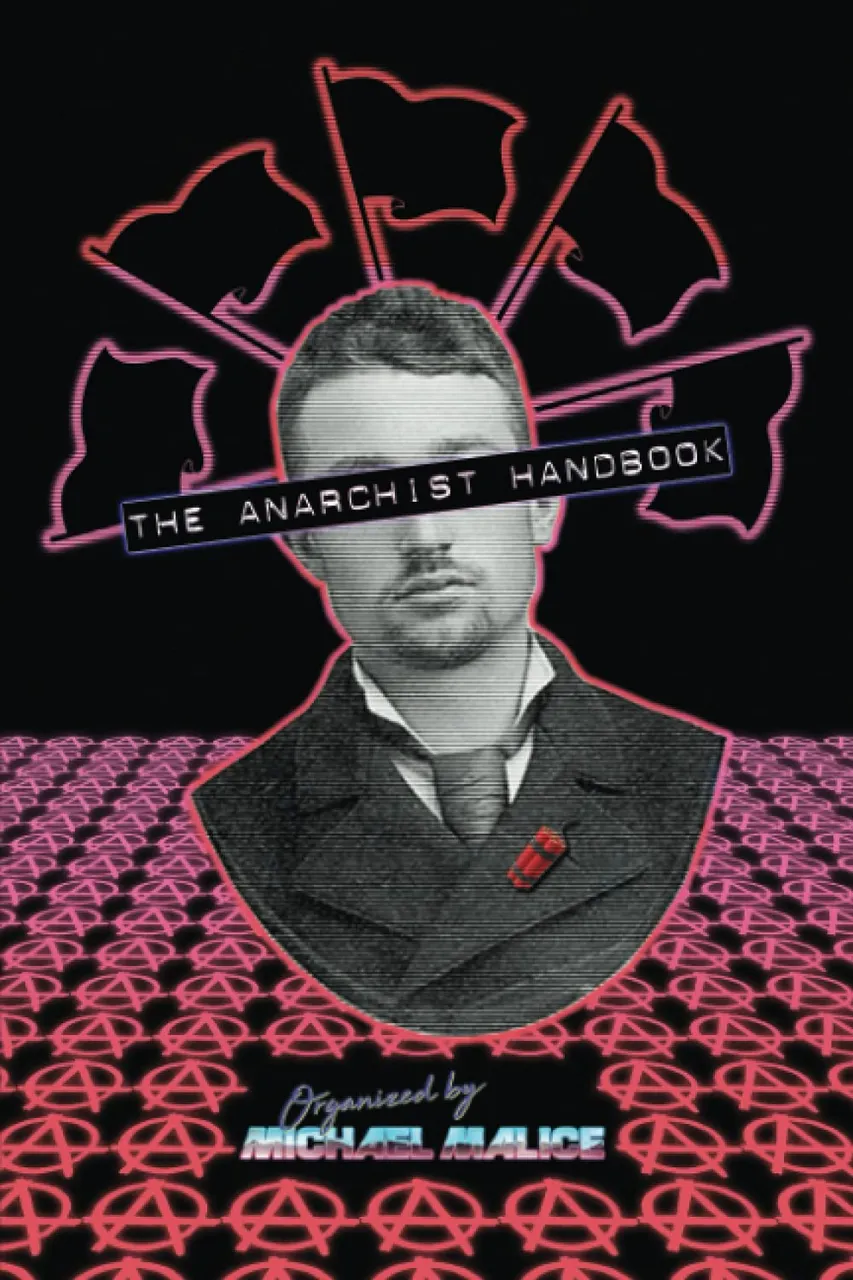The term "propaganda of the deed" applies to direct action taken for political purposes. Usually, it also implies some degree of violence or destruction within the scope of revolutionary activity, as opposed to the use of rallies, speeches, pamphleteering, and other more peaceful actions to raise support and awareness for the cause.
Anarchist activism often means breaking government laws. Agorism, as discussed in my previous post in this series, inherently rejects political authority by undermining its regulations and prohibitions, but it also rejects initiatory violence. Propaganda of the deed by contrast often includes sabotage, vandalism, assassination, arson, and other illegal acts which also violate persons and property.
My Definitions
This is a complicated subject, so some definitions are in order. As the old saying goes, "one man's terrorist is another man's freedom fighter." The first explicit proponents of this tactic were writing their ideas about 150 years ago, often in other languages. Here is what I mean by certain words and concepts as I write in English in A.D. 2021:
Society is the sum of all voluntary human interactions. Commerce, religion, and cultural tradition are all aspects.
Government is a group of people who claim a territorial monopoly in violence. Their legislation is opinion enforced at gunpoint, and their wealth is acquired by plundering society.
Politics, from the Greek polis (city), refers to the process of group coordination, administration, and decision-making, usually in the context of government power over, and administration of, society.
Anarchism is the rejection of political authority. The root of anarchy is Greek, and it means, "no rulers." Historically, it was used to describe the chaos from failed states. As a philosophy, it refers to various ideas for societal order without any central government.
Propaganda is communication intended to influence an audience. Usually there is also an implication of political goals and the suggestion of falsehood, or at least extreme bias.
Terrorism is the use of violence and intimidation against a civilian population for political purposes. Legal definitions carefully specify only non-government actors, and government coercion is always excepted in government law.
History and Application
Violent tactics have been used by many people for diverse causes. Propaganda of the deed is not necessarily exclusive to anarchists. It has been used by various revolutionaries with many different motivations. Regardless, opposition to an established government can result in being labeled an anarchist no matter the motivation.
Killing those deemed tyrants and oppressors is as direct as action can be. Early incidents often targeted the Russian monarchy and other European aristocrats. There were assassination attempts against politicians across Europe and the Americas, including US President William McKinley. Most notably, the death of Archduke Franz Ferdinand of Austria at the hands of Serbian nationalist Gavrilo Princip set off a chain of events leading to World War I.
Acts of sabotage were often aimed at business interests perceived as capitalist oppressors of the working man. Groups ranging from disaffected labor unionists to communist revolutionaries have taken direct action in the name of their causes. These incidents included everything from vandalism of machinery to bombings targeting crowds of random "bourgeois."
The outcome of such actions has often been dubious. Many activists died committing their deeds, or were caught and imprisoned or executed after the fact. Few have been considered martyrs outside their communities. World War I led to mass death and devastation across Europe, and while it certainly killed the Austro-Hungarian Empire, it also set the stage for government growth and new tax burdens on the populace. The economic turmoil of widespread central banking and fiat money led to the Great Depression, and in combination with the debt burdens imposed on Germany following the Great War, fostered an environment where reactionary Nazism could rise.
I suggest wiki-walking through the various examples provided and asking whether they targeted political power, how much collateral damage was inflicted, and how effective they were as propaganda. Is this an effective tactic? Are the people using it the kind with whom you would associate? Are the targets oppressors, active collaborators, or passive bystanders? How is guilt assigned for the ills afflictung society? What criteria define exploitation or justify violent response? Should proponents of this tactic be embraced, ostracized, denounced, or turned over to the government?
Examining Two Incidents
Neither of these are listed in the Wikipedia article above, but both could be candidates for inclusion.
I would argue John Brown's raid on Harper's Ferry was propaganda of the deed. Brown's goal was to incite an armed slave rebellion to overthrow the political and economic status quo, and he took extremely direct action by attempting to seize a military arsenal to arm his revolutionary recruits. Since he attacked a military installation, I would argue it was not terrorism, although the very idea of a slave revolt certainly terrified the planter class and many white freeholders in the South. As for propaganda, the fallout was a complicated mess as journalists, political figures, and abolitionists all took different positions to condemn or canonize him. Even today, his legacy is... complicated.
The Oklahoma City Bombing is an event from my own living memory. It was a politically-motivated attack on a government building. Did it qualify as propaganda of the deed? The intended effect is a lot less clear than Brown's slave rebellion goal. Additionally, while Wikipedia suggests his target was chosen to "minimize non-government casualties," he still set off a bomb in an urban center during business hours at a building occupied at least in part by civilians and on a street surrounded by civilians. Further, there did not seem to be significant effort at using the event for any narrative, although the target was a public location apparently chosen in part for propaganda opportunity. Was it terrorism? I would argue yes. It certainly gave government a convenient excuse to seize more power while the media blamed its enemies.
Closing Thoughts
I cannot offer a blanket endorsement of this tactic. If you want a more active sort of activism, I suggest first grounding yourself philosophically. Government is very good at two things: violence and propaganda. Activism based in propaganda of the deed faces an uphill battle, and there is no guarantee of success. Actions must be designed to achieve beneficial purposes without doing harm to the very people you intend to persuade. Don't give your oppressors ammunition for their own propaganda, and don't drive people to see governments as necessary for protection from you.
Sedition, Subversion, and Sabotage Field Manual No. 1: A Three Part Solution to the State by @badquakerdotcom might be a good starting point. The unabridged PDF is also available to download for free from his website.
I also suggest the free Rats! Your Guide to Protecting Yourself Against Snitches, Informers, Informants, Agents Provocateur, Narcs, Finks, and Similar Vermin by Claire Wolfe. There is always the possibility anyone proposing violent action is an undercover agent setting up a sting operation, after all. How many "FBI foils FBI terror plot" incidents have we seen? It's almost a joke at this point.
If you would like to read more essays on anarchism, I recommend the collection of essays entitled The Anarchist Handbook (not a referral link) curated by Michael Malice. While you can certainly find its contents for free from various sources scattered across the internet, a physical book representing the history and spectrum of anarchist thought is likely a valuable addition to your personal library. I don't agree with everything in it, and you probably won't, either, but reading it is worthwhile.

Comments are welcome. Let's explore some dangerous ideas together.
Can any form of government be truly legitimate and representative? Is any resistance or rebellion against government inherently immoral? Should we wholeheartedly embrace violent revolution, or is the best path forward through pacifism? Add to the conversation below.




